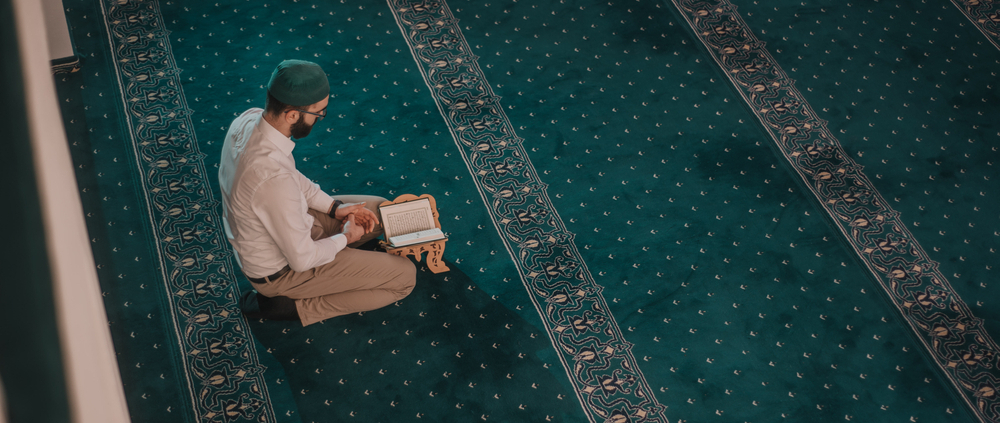How Much Recitation of Quran Is Required in the Prayer?
Hanafi Fiqh
Answered by Shaykh Yusuf Weltch
Question
I have read on your website that the minimal threshold for recitation in the silent prayers is enough to move your lips even when you’re not making a sound; I would like to know the maximum threshold as I have trouble pronouncing certain letters and words in my recitation i.e. ‘Adheem’ in the tasbeeh in ruku and I sometimes pronounce the ‘Dh’ sound louder than the rest of the words such as “A’dheem”. May Allah reward you for your efforts.
Answer
In the Name of Allah, the Most Merciful and Compassionate
Minimum Volume of Recitation in Quite Prayers
The minimum requirement of recitation is that one can hear themselves recite. This is the most authentic opinion and is most cautious.
However, just moving the lips without sound has been deemed valid by some scholars due to widespread unawareness of this issue. Therefore, if one has been reciting like this they need not repeat their prayers. It is, however, not the relied upon the position of the school and out of caution, should not be acted upon from here on. [Mufti Mahmud Ashraf; Shurunbulali, Maraqi al-Falah]
Maximum Volume of Recitation in Quite Prayers
Scholars have mentioned that in the quiet prayer if the Imam were to recite loud enough that one or two people could hear it is not considered loud recitation. Loud recitation is that everyone can hear… i.e. the entire first row, not all the congregants. This is established by the evidence of al-Quhustani from al-Mas’udiyya -that the loud recitation of the Imam is that it can be heard by the entire first row. [Ibn ‘Abidin, Radd al-Muhtar from al-Khulasa from al-Jam’i al-Saghir]
Therefore there is much expansiveness in the matter.
Hope this helps
Allah A’lam
[Shaykh] Yusuf Weltch
Checked and Approved by Shaykh Faraz Rabbani
Shaykh Yusuf Weltch is a teacher of Arabic, Islamic law, and spirituality. After accepting Islam in 2008, he then completed four years at the Darul Uloom seminary in New York where he studied Arabic and the traditional sciences. He then traveled to Tarim, Yemen, where he stayed for three years studying in Dar Al-Mustafa under some of the greatest scholars of our time, including Habib Umar Bin Hafiz, Habib Kadhim al-Saqqaf, and Shaykh Umar al-Khatib. In Tarim, Shaykh Yusuf completed the memorization of the Qur’an and studied beliefs, legal methodology, hadith methodology, Qur’anic exegesis, Islamic history, and a number of texts on spirituality. He joined the SeekersGuidance faculty in the summer of 2019.
